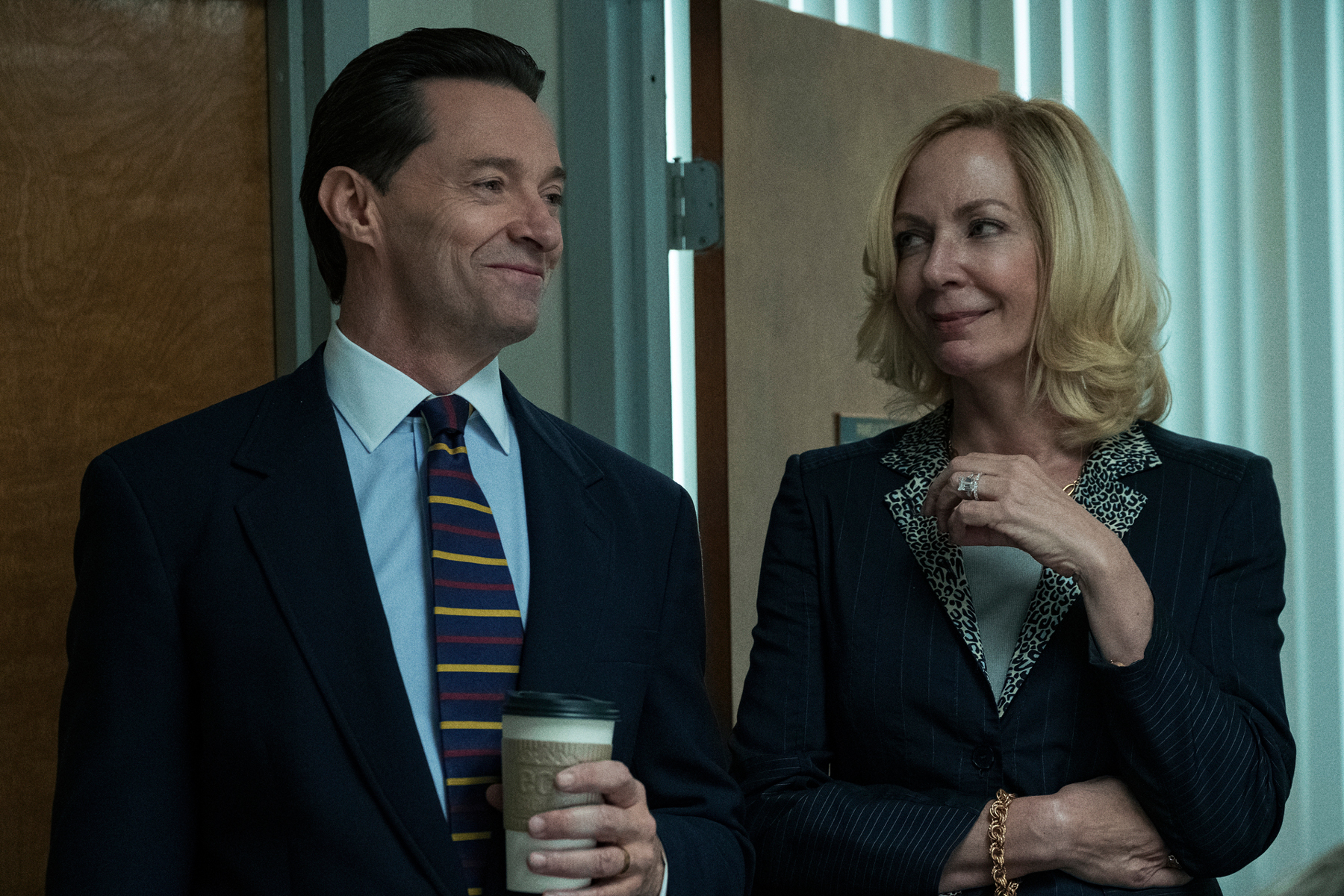The 2019 docudrama “Bad Education” tells the story of the incredible 2004 Roslyn Public High School larceny scandal, in which school administrators were found guilty of embezzling $11.2 million in taxpayer funds from a Long Island school district. The screenplay was written by former Roslyn student Mike Makowsky, who was a Roslyn Middle School student at the time. His personal treatment of the event, as well as slick performances from “Everybody Loves Raymond” star Ray Romano, Oscar winner Allison Janney and singer-actor Hugh Jackman, earned “Bad Education” a 93% rating from Rotten Tomatoes. The movie is available to stream on HBO.
Summary
In the opening scene of “Bad Education,” Frank Tassone (Jackman) freshens up for a school assembly as the school board president, Bob Spicer (Romano), lists some of Tassone’s accomplishments to the audience in the background: He propelled Roslyn High to fourth best school in the nation and sent record numbers of students to Ivy Leagues in the past year — “Harvard: two; Dartmouth: two; Yale: three; UPenn: seven; Cornell: nine. . .” From the very beginning, “Bad Education” introduces Tassone as a charismatic, competent district superintendent who truly cares about teaching, who takes time to meet with concerned parents and remembers his pupils’ names.
When he speaks to Rachel Bhargava (Geraldine Viswanathan) about her article about the district’s budget for the new skywalk plan, he gives her some advice: “It is only a puff piece if you let it be a puff piece.” Bahgrava later meets with the assistant superintendent, Pam Gluckin (Allison Janney), who encourages her to search the files in the school basement, where she uncovers some discrepancies in the district’s finances.
Meanwhile, “Bad Education” reveals that Gluckin has a personal district expense card that she lends to her family. Her son’s carelessness with the money gets the attention of school board members, who find Gluckin guilty of embezzling over $250,000 dollars. To cover up the scandal, Tassone forces her to resign from a job at which she had excelled for years.
Despite Roslyn’s newfound justice, Bhargava, in an enterprising journalistic spirit, further investigates the school’s financial records. Gluckin, it turns out, had also been using funds to supplement her husband’s salary and to pay for expensive fees to made-up consulting companies. Barghava finds Tassone to be complicit in the scheme as well — annual costs had been paid to a company named “Wordpower Tech,” the address of which Barghava discovers is actually Tassone’s Manhattan apartment. There, she meets his husband and learns that Tassone had been in the closet since he first began teaching.
When Rachel publishes her incriminating story, the deep web of lies untangles, infuriating Roslyn residents, disrupting the lives of those involved and destroying Tassone’s career, reputation and relationships. Gluckin is convicted for embezzling $4.3 million for personal use from the district, and Tassone for $2.2 million — a total of $11.2 million was embezzled over the course of a dozen years. As in real life, justice is served.
Review
Watching Tassone face the consequences for his actions is not as satisfying as it should be. Instead, “Bad Education” chooses not to vilify the characters any more than they already have been by the media. Rather than condoning or condemning them for their wrongdoings (the law takes care of that), Makowsky sees the complexity of the issue and presents them as human beings whose good intentions were eventually overpowered by self-interest and the allure of money.
It is particularly noteworthy that a “fall from grace” narrative like “Bad Education” reveals how Gluckin and Tassone slowly succumb to temptation in hindsight. This choice seems like an ineffective way to inspire sympathy for the characters, yet the ultimate result is the exact opposite.
The brilliance of the movie, and of Hugh Jackman’s performance in particular, comes into play when the audience learns how Gluckin’s and Tassone’s crime started after they had both been outed: Tassone’s accidental $20 dinner charge to the card had gone unnoticed, as had the $0.60 bagel the next day. The expenses grew and compounded. Gluckin had worked hard all her life and earned degrees to get to her position. “I did everything I had to,” she said after resigning, but that still wasn’t enough to afford her daughter’s tuition. It was important to Gluckin that her daughter could have the opportunity to attend the university of her choice. So, she paid for it with the money she stole. Frank also cared deeply about his job; he tells Spicer, “If I wanted the money, I would have gone to Wall Street. . . But I wanted to make a difference. And I did.”
Because Roslyn had been doing so well, in part due to Tassone’s and Gluckin’s skillful administration, and because the district was not lacking for money, Gluckin also helped her family financially and worked her way up to splurging on luxurious vacations and a couple of East Coast homes. Tassone racked up an embarrassingly large debt for dry cleaning, suits and cosmetic surgeries. He had also bought a modest home in Las Vegas for his secret boyfriend, Kyle Contreras, an exotic-dancer-turned-bartender whom Tassone sincerely loved.
As repugnant as their collective crime may be, there is an especially sad, poignant scene that attests to the quality directing, writing and acting in “Bad Education”: Gluckin and her niece are arrested while Tassone, in Nevada, dances with Contreras after telling him they would live together for the long-term. The cops arrive as soon as the couple gets home. Tassone tells Contreras how much he means to him and reveals that he left $30,000 dollars in the top drawer of their dresser for Contreras to use until he finds a better job.
The movie skips forward to see Tassone in prison, fantasizing about being applauded at an assembly for helping Roslyn rise as the top school in the country.
















